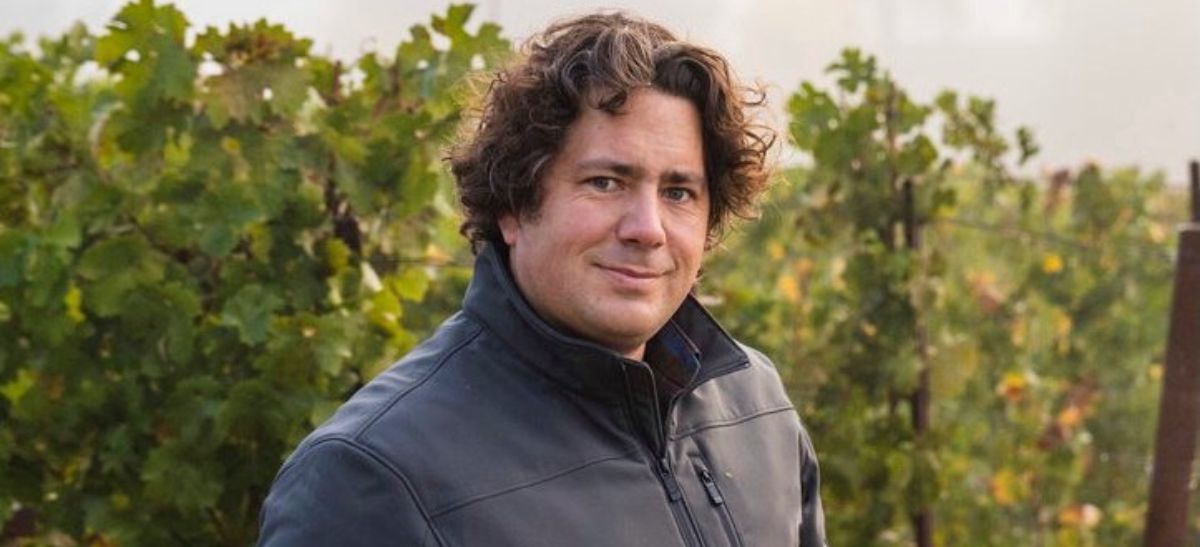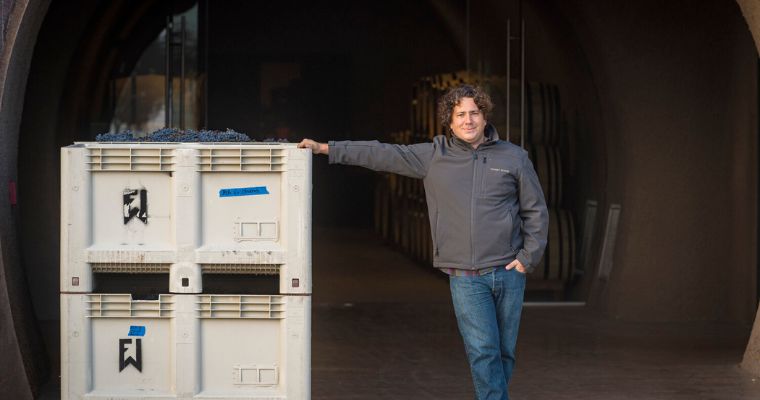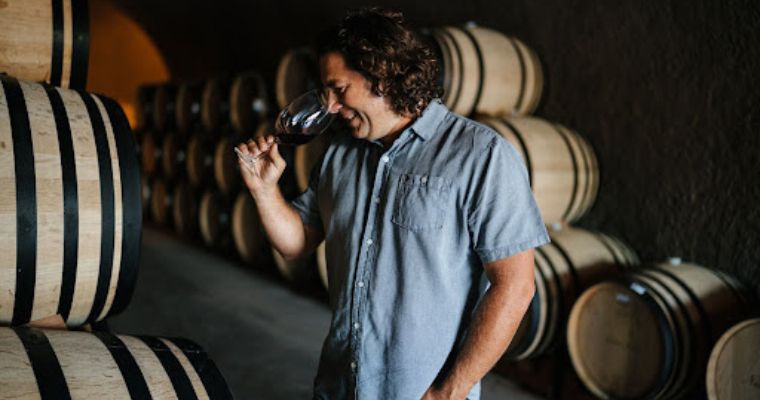Early Bird
Deadline
January 31, 2026
Judging
Date
May 18, 2026
Winners
Announced
June 10, 2026

Julien Fayard, one of Napa Valley's most renowned consulting winemakers with more than two decades of experience, produces California varietals with French refinement. In addition to his Master in Winemaking from Toulouse, France, Julien also holds a Master in Agribusiness from ESA France and an MBA from UC Davis. Julien, a Frenchman by birth, started making high-quality rosé at the Provence winery owned by his family. He emphasizes making wines that are distinct from one another and utilizing their characteristics. The terroir of Julien's wines is clearly expressed, showcasing the unique qualities of the grapes, vineyard practices, land, and climate. He has a history of creating brands that are both high-quality and market-dominant.
I started fairly early to work in the vineyards and the winery when spending time with my cousins on their estate, Chateau Sainte Marguerite, in Provence. From there, I studied wine and added some good internships to my resume, which I started to build seriously early on. I began my career as a winemaker producing quality rosé, then went to Bordeaux, where I worked at Lafite Rothschild and Smith Haut Laffite. Later on, I relocated to Napa Valley, where I was Philippe Melka’s director of winemaking for a few years before launching my own projects. Now, with over two decades of winemaking expertise, I am one of Napa Valley’s most consulting winemakers producing wines with California power and French finesse. I believe in producing wines with identity, exploiting what makes each one unique. My wines are a pure expression of their terroir, highlighting the specificities and characteristics of the fruit, vineyard management, soil, and climate. I now also have a track record of building brands both in terms of quality and market presence. In terms of education, I earned my Master in Agri-Business from ESA France and a Master in Winemaking from Toulouse, France. In 2011, I received my MBA from UC Davis.
The American wine industry is following the evolution of taste and food habits. America as a country is eating fewer sweets and adding more vegetables to its table. They are also becoming more educated about food, and the quality of the produce and restaurants is growing faster every day. Wine goes right along with that. There is a new evolution of palates looking for fresher, less-manipulated wines from environmentally-conscious producers. Today’s wine drinkers are searching for better balance and increased age-ability from wines properly crafted with sustainability top of mind. As a result, we’re seeing more wines that reflect these consumer preferences.
Winemaking is a long, cyclical process requiring the same steps performed in the same order each vintage. The average winemaker in Napa works with 50-100 lots, but a consulting winemaker like myself can work with as many as 500 lots in a year. The exposure to these different vineyard sites gives me a depth of knowledge and understanding of the nuances in the area. I spend a lot of time on the road visiting vineyards and meeting with growers as well as clients. I sometimes have the opportunity to meet guests visiting the winery for tastings. When I’m able to, I will travel to different markets to participate in events and dinners with buyers.
[[relatedPurchasesItems-41]]
I am currently making wine from nearly every AVA in Napa Valley, as well as the West Sonoma Coast and the Sierra Foothills. Making great wines with integrity to the vines and the people I’m making them for is what drives me.
For each of our client projects, it’s all about quality over quantity. Throughout the past 12 years, I've had the pleasure of starting with most of the brands we currently work with from the ground up, and today there is a measurable market success. I want to help each of them continue to grow to the next level without compromising on quality. To do that, we focus on producing estate and single-vineyard wines as they provide pure expressions, a distinctive personality, and a recognizable character for each wine.
I have also added a few brands to the portfolio that are priced in the mid-range and deliver on quality and value, i.e. Lepich, Terra 9, and Cultivar. These wines are important because they offer wine drinkers an introduction to a brand for a smaller investment — Lepich and Purlieu are a great example of this — while allowing them the opportunity to take a step up the ladder and explore a brand’s more exclusive (and expensive) bottlings.
At the end of the day, my goal is to make our clients successful and grow with them as their brand thrives in the marketplace.
We make terroir-driven wines with non-interventionist winemaking. Modern, yet classic with value at every price point. The vineyard drives the difference. It’s my job to bring out each growing place's specific characteristics and personalities. I work hard and am very technical on everything that supports winemaking and very traditional on what is in direct contact with the wine. I don’t have a set equation for any wine.
We participate in a variety of marketing opportunities, from trade shows to on-site events with our restaurant and retail partners to media interviews. On select brands, we will work with our distributors on an incentive program for their teams. I am very interested in the returning consumer. For me, my job is to make sure the wine brings enough positive emotion that the end consumer comes back for more. This is where you have real demand and a brand.

Image: Julien Fayard, Source:Fayardwines
We go beyond the technical data and share the stories behind the wines. Anyone can find the technical data on our wines, so we focus these opportunities to connect with the buyers and sommeliers on the stories of the places, people and winemaking philosophy. Since we don’t get a chance to connect with every drinker/consumer of our wines, we equip the sommeliers with stories that engage their guests and make these wines memorable, so they seek out another bottle.
Angele in Napa is a quaint French restaurant with a relaxed atmosphere, great presentation, and service.
Gourmet au Bay in Bodega Bay, fantastic oven only and sourced solely from the bay dishes, an excellent choice after surfing
Oenotri, because we all need great pasta!
The ability to connect authentically with the drinker/buyer is paramount. Many are intrigued by the science and art of winemaking—there are few industries that bridge both—so I think by making myself available and accessible to our audience and connecting with them personally when they visit us at the winery, or we visit their market for events and dinners, etc. it’s those moments of connection that make the difference for us.
As the winemaker, though, I can’t be away from the vineyards and cellar for too long, so assembling the team surrounding me to share these stories from California and make these connections for our brands is crucial.
We also deliver a high level of service to our clients and partners that add value beyond the winemaking and helps our brands build a solid, reliable reputation.

Image: Julien Fayard, Winemaker at Fayardwines
Image Credit: Matt Morris
A good winemaker is surrounded by good people with a diversity of traits. While a good winemaker is hardworking, detail-oriented, patient, sensitive, book smart, and has empirically learned the craft, they have learned to hire their weaknesses, train them well and delegate. The environment and team they create around them are what sets a good winemaker apart from their peers. Lastly, resilience. Winemaking is an ongoing source of new situations to a fault. If you can’t take the brunt of it and keep pushing, winemaking will take down the most driven. I often compare it to the front line of a rugby team. Running the most, taking the most hits, and always on the ball until the game ends.
It might seem a bit classic, but wine would be my go-to. It has so many versions that can fit many settings. It is versatile in that way, and there is always a bottle not too far away ready to match the moment. My favorite wines are always enjoyed around a table with friends, dinner, and long evenings.
I am spending time with my children. I also love to surf. Living in Napa, I’m fortunate to be only an hour by plane or car from some of my favorite beaches to surf on the West Coast.
A sense of achievement.
Header Image: Julien Fayard, Winemaker at Fayardwines, Source: fayardwinemaking
Interviewed By Aakriti Rawat, Beverage Trade Network
Enter your Wines now and get in front of top Sommeliers, Wine Directors, and On-Premise Wine Buyers of USA.
